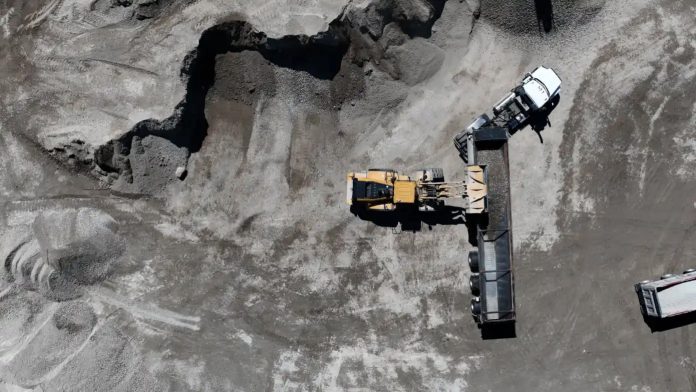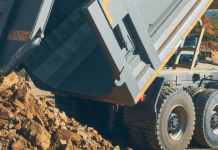
Canadian Design and Construction Report staff writer
The Canadian Automobile Association (CAA) has joined nine other key groups in a coalition pushing to increase the use of recycled crushed aggregates (RCA) in public infrastructure projects across Ontario.
The coalition, which includes civil infrastructure leaders, builders, suppliers and engineers, wants to influence policy changes that would incentivize and mandate RCA use in roads, highways, bridges, tunnels and subdivisions. It also calls for harmonizing municipal construction specifications through provincial standards to promote greener, more cost-effective infrastructure.

Currently, 180 million tonnes of aggregates are used annually in Ontario, with more than 50% used in the construction of roadways, bridges, and tunnel infrastructure. Only 7% or less currently come from recycled sources, with much attributed to the Ontario Ministry of Transportation.
A 20 per cent recycling rate by municipalities would avoid extracting up to 33 million tonnes of new aggregate per year – an annual cost savings of $264 million and GHG emission reduction equivalent to taking 15 million cars off the road for a year, the coalition says.

“As the voice of Canadian motorists, CAA supports smarter infrastructure investments that improve road safety, durability and reliability,” said Lauren Fisher, manager of government and stakeholder relations for CAA South Central Ontario. “The use of recycled crushed aggregates is proven to deliver reliable performance, while cutting costs and carbon emissions. We’re proud to join this important coalition and support a mandate that will benefit drivers, taxpayers and the environment.”
If Ontario municipalities mandate just 20 per cent RCA use in their infrastructure projects, they can save more than $260 million annually and reduce greenhouse gas emissions equivalent to removing 15 million gas cars from the road every year.

The 10 coalition members include:
- CAA
- Concrete Ontario
- Good Roads
- Greater Toronto Sewer and Watermain Construction Association (GTSWCA)
- Heavy Construction Association of Toronto (HCAT)
- Residential and Civil Construction Alliance of Ontario (RCCAO)
- Ontario Road Builders Association (ORBA)
- Ontario Sand, Stone, and Gravel Association (OSSGA)
- Ontario Society of Professional Engineers (OSPE)
- Toronto and Area Road Builders Association (TARBA)
Raly Chakarova, executive director of the Toronto Area Road Builders Association (TARBA), said CAA’s involvement highlights that the issue extends beyond construction.
“Using more recycled materials in infrastructure projects can safeguard the long-term expansion of our transportation networks while preserving non-renewable resources and reducing carbon emissions, waste and traffic congestion,” she said. “Standardizing construction specifications at the municipal level can also rein in rising construction costs, speed up project delivery and ensure higher-quality outcomes.”
RCA is made by reclaiming and recycling concrete and asphalt that would otherwise be sent to landfills. Because RCA is often sourced closer to construction sites than new materials, its use reduces long-haul trucking, cutting carbon emissions, project costs, traffic congestion and road wear.
Although RCA is already used in Ontario’s 400-series highways, Toronto Pearson Airport and other transit projects, municipal adoption remains limited due to some local policies.
Experts say that if Ontario municipalities mandated just 20 per cent RCA in infrastructure projects, it could save more than $260 million annually and reduce greenhouse gas emissions equivalent to removing 15 million gasoline-powered cars from the road each year.
To learn more about the campaign and the benefits of RCA, visit rcaontario.ca.




